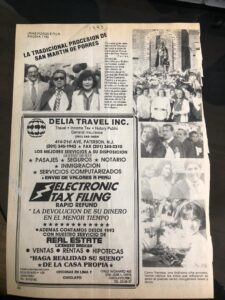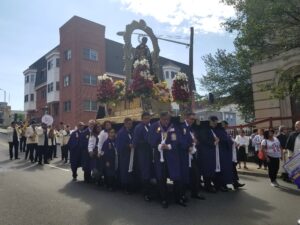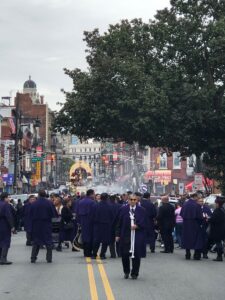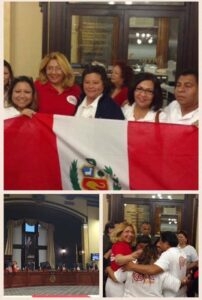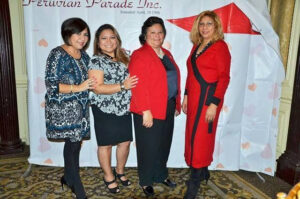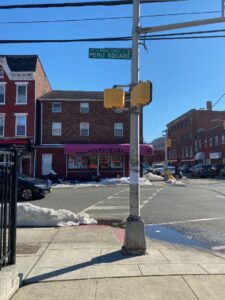Papelitos Guardados: Women’s Collective Stories
Elena Sabogal
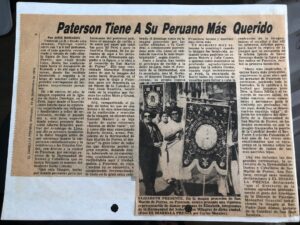
I moved to New Jersey in 2007 after being offered a job in the Department of Women’s Studies at William Paterson University. One of the courses I was assigned to teach was Latina Testimonios. For this class, we used the book Telling to Live written by 18 Latina scholars of different backgrounds who identified themselves as the Latina Feminist Group. Their writings were guided by a concept they named “papelitos guardados,” a phrase coined by Maria Luisa Lomas, the mother of one of the authors. Papelitos guardados are little scraps of paper that refer to various documents and roles that we protect or keep secret until the time is right to share them with others.
This concept of papelitos guardados made sense to my students. Inspired by the various stories of these women, they began writing testimonios about their lives and researching the immigrant stories of their mothers and grandmothers, which they shared with the class at the end of the semester. Some students stated that they knew very little about their families’ immigration stories and were surprised to discover the challenges their mothers and grandmothers had encountered in their journeys to the United States.
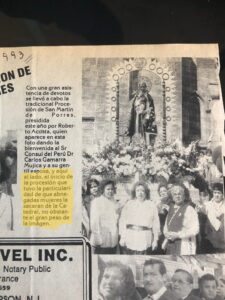
Most of my students lived in Passaic County and many grew up in Paterson so our focus was on the histories of the local communities. This is how I connected to Paterson, through one of my students, Soranda who introduced me to her mother, Olga who was very active in the Peruvian community.
When I began my research, I noticed that the women I interviewed were generally reluctant to talk about their accomplishments and contributions to the growth of the Peruvian community in Paterson. However, they were eager to show me their papelitos guardados. One of the first women I interviewed was Ana Maria Herbozo. She invited me to her home and shared her collection of papelitos guardados. Throughout the years she had saved newspaper clippings, community magazines, announcements, work orders, receipts, and letters she had written on behalf of the Hermandad de Damas y Caballeros de San Martin de Porres, the first Peruvian religious association founded in Paterson in 1975.
Ana Maria’s saved papelitos guardados, along with those of other women provided invaluable information that helped me follow leads reflected in my chapter. I was not always successful. If you have been to Paterson, you may have seen a restaurant on the corner of Market and Mill Streets called La Tia Delia. For a long time, I attempted to interview Delia Cortez, the owner, but she always refused, claiming she had little to say. She passed away in 2016. It turns out that another woman, Matilde Sibori, who migrated to Paterson from Peru in 1965, owned one of the early Peruvian restaurants in the 1970s, at the same location. Matilde later sold the property to Delia. I learned this story from Matilde’s daughter. Today, this corner has been renamed Peru Square.
“Forgotten Voices” aims to bring attention to women who have passed away and whose stories are now lost and to give visibility to the women who are still with us and continue to make positive changes in the community. Peruvian immigrant women have challenged traditional roles and continue to fight for recognition.
Perhaps one of the most frustrating aspects of my research in Paterson is how little information I was able to find about the Latino population in general even though today over 60% of Paterson identifies as Latino. At a time when the Latino population is under attack, these papelitos guardados can provide critical information that will allow us to preserve our histories.
We need to continue documenting the local histories of our communities and Latina women in particular by encouraging them to share their papelitos guardados. We need to persuade them to talk about the importance of sharing their individual and collective stories with others so their contributions can be recognized. As the Latina Feminist Group argued almost 25 years ago, sharing our stories empowers our communities.
